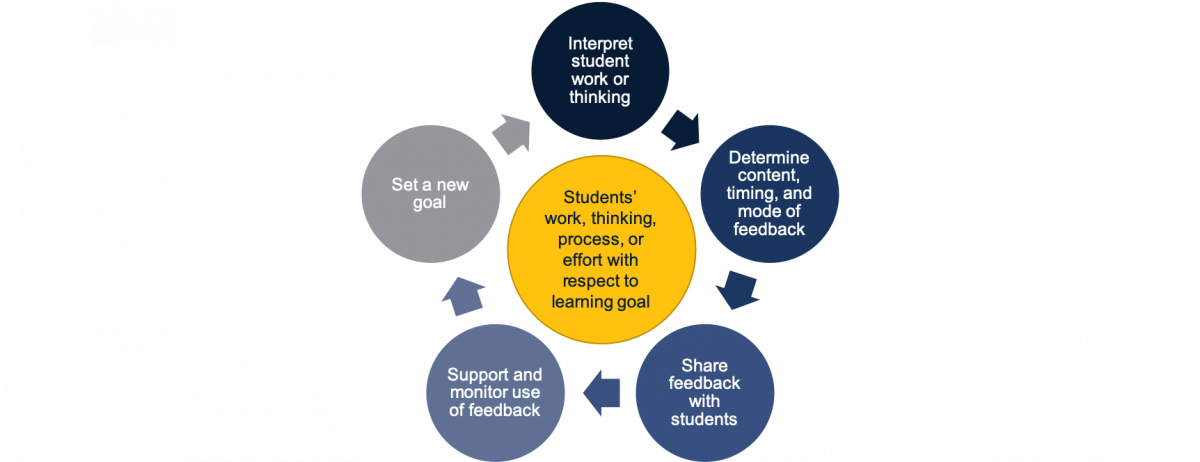What is providing feedback to students?
Feedback supports learning by focusing students’ attention on specific aspects of their work and supporting their ongoing learning. Good feedback is specific, focused, and not overwhelming in scope, and supports students’ positive perceptions of their own capability. Giving skillful feedback requires the teacher to make strategic choices about the frequency, method, and content of feedback and to communicate in ways that are understandable by students.
How does providing feedback to students advance justice?
Providing feedback that helps students to see their strengths and focus on areas for improvement enables teachers to partner with and empower learners. When lacking feedback, students can feel invisible, uncertain about the quality of their work, and unclear about what to do next. Skillful feedback, whether offered publicly or privately, positions learners as visible, valued, and in control of their learning. It demonstrates respect for students’ ideas and work by taking them seriously.
Equitable provision of feedback requires that teachers understand and intentionally work against normalized patterns by which Black, Latinx and Native American children receive significantly less feedback than their peers. Often the feedback they receive is negative, based on teachers’ misunderstandings of children’s thinking, or is non-academic.
The measure of feedback lies less in what the teacher says than in what students interpret the teacher as having said. Feedback that students interpret as affirming students’ capacity and supporting their learning not only helps them improve their work or thinking in a particular moment, but supports ownership of their learning and their identity as practitioners of an academic discipline.
What are the elements of the practice?
The diagram below breaks down work that teachers do when they are providing feedback to students. This breakdown, or decomposition, helps teacher educators to break down the practice into a set of parts that can be observed and practiced.
